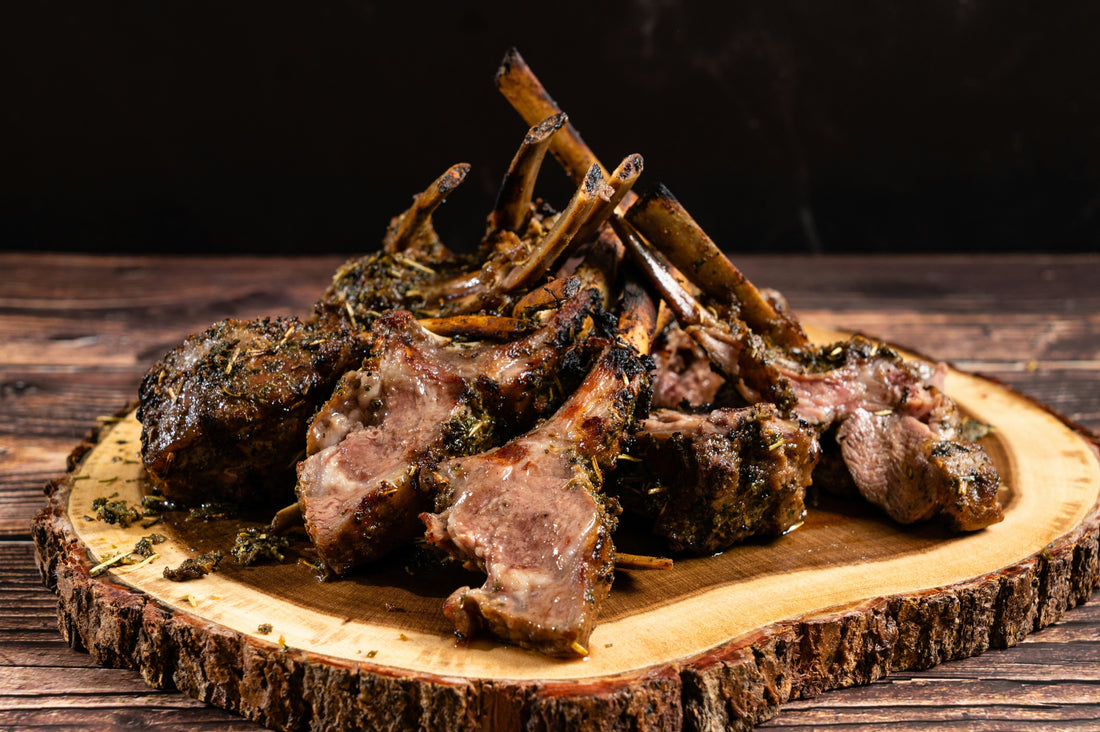When a marinade is done right, you should expect tender, flavourful meat. Not meat that tastes sweet with no real depth. Or meat with marinade that sits on the surface like sticky syrup instead of actually penetrating the protein.
Your general technique might be right, but what about your honey technique? Honey is a complex ingredient that can break down proteins, add layers of flavour, and create proper browning when you understand how it works.
So is honey good for marinating? Absolutely. Let’s break it down.
What Honey Does in Marinades
Honey contains natural enzymes that break down protein fibres, making tough cuts more tender. The complex sugars create better caramelisation when you cook the marinated protein. And the slightly acidic pH helps other marinade ingredients penetrate deeper into the meat.
But here’s what separates amateur marinades from professional ones: honey needs partners to work properly. Used alone, it just makes the meat sticky and sweet. But combined with acids, salts, and aromatics, it becomes the foundation for marinades that make your dish memorable.
Raw honey works better than processed versions because it retains the enzymes that help tenderise proteins. Those enzymes are destroyed by heat processing, which is why processed honey just adds sweetness without doing any of the heavy lifting.
Building Marinades That Actually Work
How to make a honey marinade? Start with the foundation: honey, acid, salt, and fat in the right proportions.
For every quarter cup of honey, use:
-
2 tablespoons acid (lemon juice, vinegar, or wine)
-
1 teaspoon salt
-
2 tablespoons oil or melted butter
-
Aromatics (garlic, herbs, spices)
The acid helps the honey penetrate the protein while balancing sweetness. Salt draws out moisture initially, then gets reabsorbed along with the other flavours. Fat carries flavour and prevents the honey from making the surface too sticky.
Mix honey with warm (not hot) water first to help it dissolve evenly. Cold honey clumps and doesn’t distribute properly throughout the marinade.
What Should You Avoid When Marinating?
-
Don’t use metal containers with acidic marinades because they can react and create off-flavours. Glass, plastic, or food-grade stainless steel only.
-
Never marinate at room temperature for more than 30 minutes. Honey marinades are particularly prone to bacterial growth because of the sugar content. Keep everything refrigerated.
-
Don’t over-marinate delicate proteins. Fish and shellfish need 15–30 minutes maximum. Chicken pieces work well for 2–4 hours. Tough cuts like beef chuck can handle overnight marinating, but even they don’t need more than 24 hours.
-
The biggest mistake is using too much honey. More isn’t better; it just makes things burn when you cook them. Honey should enhance the other flavours, not dominate them.
Can You Use Honey Instead of Sugar When Making a Marinade?
Yes, but you need to adjust the ratios. Honey is about 25% sweeter than white sugar, so use less. It also adds moisture that sugar doesn’t, which means you might need slightly less liquid in your marinade base.
Unlike sugar, honey brings its own flavour profile. Light honeys add floral notes that work beautifully with poultry and pork. Darker honeys contribute complexity that complements beef and game meats.
The enzymes in honey also mean your marinade works faster than sugar-based alternatives. Cut marinating times by about 25% when switching from sugar to honey.
Marinades for Different Proteins
-
Chicken benefits from lighter honeys combined with citrus and herbs. Try honey with lemon juice, olive oil, rosemary, and garlic. The honey helps create gorgeous golden skin while keeping the meat moist.
-
Pork works brilliantly with honey, apple cider vinegar, and warming spices like cinnamon or five-spice. The natural sweetness complements pork’s richness without overwhelming it.
-
Beef needs stronger flavours to balance honey’s sweetness. Combine it with red wine, soy sauce, and robust herbs like thyme or oregano. The honey helps tough cuts become tender while adding complexity to the final flavour.
-
Fish requires the gentlest approach. Honey with rice vinegar, ginger, and a touch of sesame oil creates marinades that enhance rather than mask delicate flavours.
Getting the Timing Right
Short marinades (15 minutes to 2 hours) work best for adding surface flavour and creating better browning. The honey caramelises beautifully during cooking, creating appealing colour and complex flavours.
Longer marinades (4–24 hours) break down protein structure, making tough cuts more tender. This works particularly well for cheaper cuts that benefit from the enzyme action.
Don’t waste expensive cuts on long marinades. Prime steaks and fresh fish need minimal marinating – just enough to add flavour without changing their natural texture.
Choose Honey Marinades for Your Professional Kitchen
Honey marinades are great for commercial operations in the HORECA sector. They’re more sustainable than sugar-based alternatives because the natural preservative properties of honey help prevent spoilage and the caramelisation creates better visual appeal on plates.
Consistency matters in high-volume operations and quality honey from reliable suppliers ensures your marinades perform the same way every batch.
Get that quality H&G honey from Woods Foodservice today!

